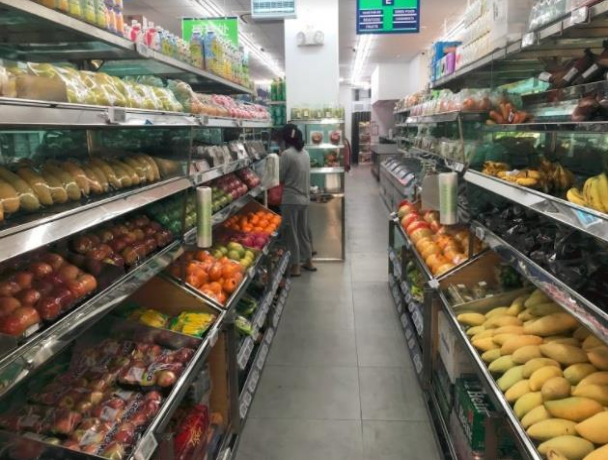
Can Sheng Siong repeat its success in China?
It could lose around US$6m if it doesn’t succeed.
Sheng Siong opened its first overseas store in Kunming, Yunnan province in Q4 2017. According to Maybank Kim Eng, it aims to replicate its Singapore business there and expand into densely populated residential districts.
Management has positioned its Kunming venture as a trial. “If it succeeds, it may expand further. If not, attributable sunk-in cost should be limited to USD6m, excluding management’s time and resources,” said Maybank KE analyst John Cheong.
However, the brokerage is more positive about Sheng Siong’s growth in the province, which provides low rentals to provide modern grocery shopping convenience.
Sheng Siong said that the Chinese grocery industry is still dominated by traditional wet markets and neighbourhood convenience stores. “The only Western supermarkets - Carrefour, Tesco and Walmart - are located in Kunming’s financial district, far from SSG’s outlet,” Cheong added.
Cheong noted that Kunming is a “special” city. “Not only does its population of 6.6 million dwarf that of Singapore, it is slated to benefit from China’s One Belt One Road initiative. It is destined to be the terminus of a 3,000 km high-speed rail link to Singapore,” he said.
Sheng Siong’s local partner for its 54,000 sqft store is the unlisted Kunming Lǜchén Group, which owns 30%. Sheng Siong owns 60%, whilst Singapore-listed printing company, Xpress Holdings holds remaining 10%. Cheong added that Kunming Lǜchén has interests in property, hotels, microfinancing, supermarkets, condiment manufacturing and retailing.
“The supermarket is located in a new shopping mall built by Hong Kong-listed Greenland Hong Kong Holdings... The mall is smack in the middle of a large residential enclave in the suburbs of Kunming. This is important as Chinese shoppers prefer to find their big supermarkets in malls,” Cheong said.
Moreover, Sheng Siong intends to use its supply chain in Singapore to bring into China more brands from the West, Japan, and Korea. “Management says that getting food supply is not a problem as China is a buyers’ market and sellers are tripping over themselves to find buyers,” Cheong added.
Maybank KE thinks the supermarket firm’s entry could be rightly timed. It noted that China’s supermarket sales grew 3.2% YoY in 2017, up from 1.7% in 2016. “Supermarkets suffered less from the online threat than hypermarkets, as their smaller sales areas and smaller inventories apparently enabled them to adapt quicker to changing consumer tastes,” it said.
Moreover, community supermarkets have been gaining ground. “Located in residential areas, these offer products which many local consumers need, usually daily necessities and local fresh foods. To improve convenience, more community supermarkets have also been providing home-delivery services. Leading supermarkets in China are gradually adopting smaller formats to reduce their operating costs from space rental and labour and to increase their flexibility in meeting consumer needs,” Cheong concluded.
























 Advertise
Advertise










